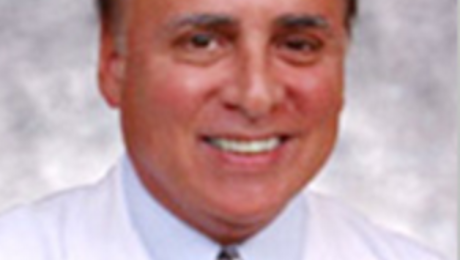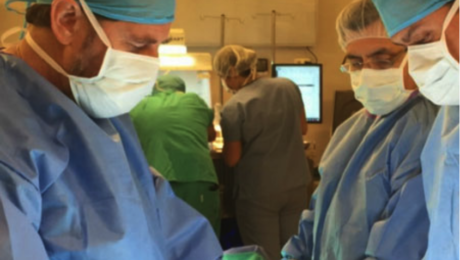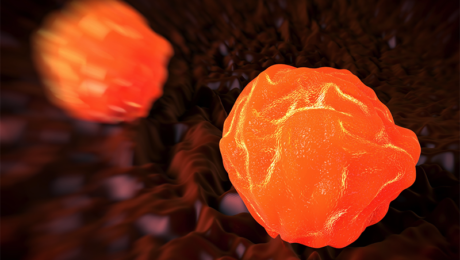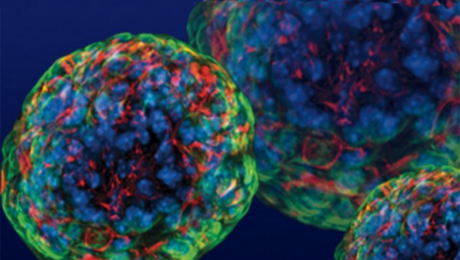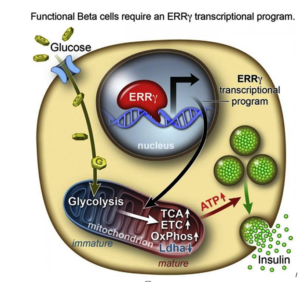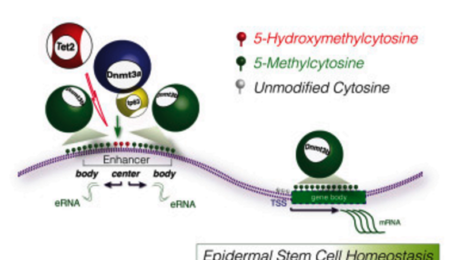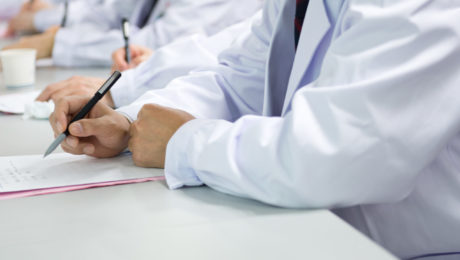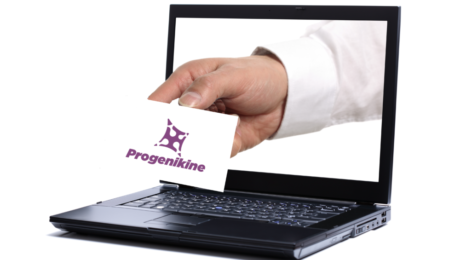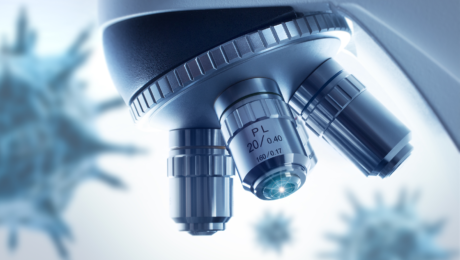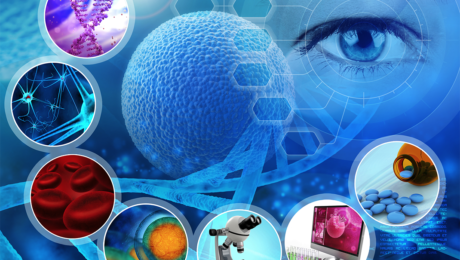Joseph Purita, M.D.
Joseph Purita, M.D.
Global Stem Cells Group Advisory Board member
Joseph Purita, M.D., is a world-renowned orthopedic surgeon and stem cell pioneer, using cutting edge technology in regenerative medicine in conjunction with stem cell platelet rich plasma (PRP) therapy to treat orthopedic injuries and relieve pain. He is also a pioneer in the use of the laser in orthopedic surgery.
Named a U.S. News and World Report Top Doctor in 2012, Dr. Purita, a renown orthopedic and arthroscopic surgeon, heads Global Stem Cells Group’s Scientific Advisory Board. A pioneer in the use of stem cell and PRP therapy for orthopedic conditions, Dr. Purita has practiced with the Boca Raton Orthopaedic Group in Boca Raton, Florida since 1981. In 2012, Purita gained international attention when he treated New York Yankees pitcher Bartolo Colon’s ligament damage with stem cells, restoring the athlete’s injured shoulder and career. Purita has since treated an array of professional athletes with career-threatening injuries.
Dr. Purita is the director of the Institute of Regenerative and Molecular Orthopedics in Boca Raton, Florida, specializing in the use of stem cells and PRP injections for use in sports medicine and other musculoskeletal conditions. The Institute has treated some of the most prominent professional athletes from all major sports in both the U.S.. and abroad.
He is an instructor and proctor of surgeons in the use of lasers in arthroscopic and orthopedic surgery at a variety of area hospitals,
Dr. Purita is a Fellow, American Academy of Orthopedic Surgeons; Fellow, American College of Surgeons; member, American Medical Association; member, Southern Medical Association; member, Palm Beach Medical Society; member, Broward County Medical Society; member, Palm Beach Orthopedic Society, and member, Florida Medical Association. His certifications include the American Board of Orthopedic Surgery; American College of Orthopaedic Surgery; American Board of Pain Management, and the American Board of Regenerative Medicine.
He is Is Board Certified By The Following Organizations:
• American Board of Orthopedic Surgery
• American College of Orthopaedic Surgery
• American Board of Pain Management
Dr. Purita is a popular speaker at regenerative and orthopedic conferences worldwide.
- Published in Advisory Board Members
Global Stem Cells Group Announces Stem Cell Training Course Scheduled in Barcelona
Global Stem Cells Group and its subsidiary Stem Cell Training, Inc., have announced plans to hold a stem cell training course in Barcelona, Spain, Nov. 11 – 12, 2016. Orthopedic and cosmetic surgeon J. Victor Garcia Gimenez, M.D. will conduct the course for qualified physicians and medical professionals.
[su_spacer]
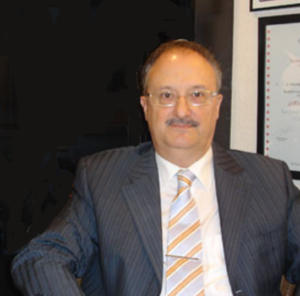
J. Victor Garcia Gimenez, M.D.
Garcia Gimenez, a member of the Global Stem Cells Group Advisory Board, first conducted the course for GSCG in 2014. The
course is part of the Miami-based biotech company’s growth in the European market.
The training course was developed for physicians and high-level practitioners to learn clinical protocols and state-of-the-art techniques for isolating and re-integrating adipose- and bone marrow-derived stem cells. Stem cells are harvested from the patient’s own body and redistributed to areas of the body receiving treatment. Patients experience an effective, non-invasive procedure, and a faster recovery period with little to no downtime.
Garcia Gimenez is a specialist in orthopedic and cosmetic surgery, president of Therapeutic Confrontations (CONFTERA), and practices cosmetic and anti-aging medicine, as well as aesthetic therapies in Barcelona. He is the president of the Spanish Society of Medicine and Cosmetic Surgery; co-director of the UAB-SEMCC; Chairman for Spain of the International Academy of Cosmetic Surgery, in addition to other medical and professional boards.
The stem cell training course will be offered through Global Stem Cells Group affiliate Stem Cell Training, Inc.
To learn more, visit the Global Stem Cells Group website, or the Stem Cell Training website, email bnovas(at)regenestem(dot)com, or call +1 305 560 5337.
About Global Stem Cell Group: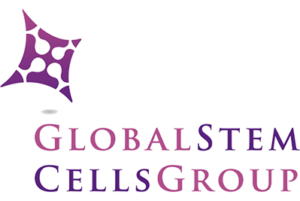
Global Stem Cells Group, Inc. is the parent company of six wholly owned operating companies dedicated entirely to stem cell research, training, products and solutions. Founded in 2012, the company combines dedicated researchers, physician and patient educators and solution providers with the shared goal of meeting the growing worldwide need for leading edge stem cell treatments and solutions. With a singular focus on this exciting new area of medical research, Global Stem Cells Group and its subsidiaries are uniquely positioned to become global leaders in cellular medicine.
About Stem Cell Training, Inc.:
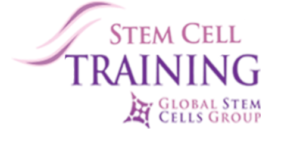 Stem Cell Training, Inc. is a multi-disciplinary company offering coursework and training in 35 cities worldwide. The coursework offered focuses on minimally invasive techniques for harvesting stem cells from adipose tissue, bone marrow and platelet-rich plasma. By equipping physicians with these techniques, the goal is to enable them to return to their practices, better able to apply these techniques in patient treatment.
Stem Cell Training, Inc. is a multi-disciplinary company offering coursework and training in 35 cities worldwide. The coursework offered focuses on minimally invasive techniques for harvesting stem cells from adipose tissue, bone marrow and platelet-rich plasma. By equipping physicians with these techniques, the goal is to enable them to return to their practices, better able to apply these techniques in patient treatment.
To view this press release live online, click here.
###
- Published in Press Releases
Texas Man Becomes First Adult in the U.S. to Receive Updated Stem Cell Transplant to Treat Leukemia
Introduction to the Groundbreaking Stem Cell Transplant
Chuck Dandridge, a Mansfield, Texas resident, became the first adult in the U.S. to receive a newly modified stem cell transplant that uses genetically engineered blood cells from a family member. The milestone was announced by researchers at UT Southwestern Medical Center’s Harold C. Simmons Comprehensive Cancer Center in Dallas, where the procedure was performed.
Dandridge’s Medical Journey and Diagnosis
Dandridge’s medical journey began in 2013, with a routine doctor’s visit to check his cholesterol levels; lab tests revealed low blood counts and further testing confirmed Dandridge’s diagnosis of myelodysplastic syndrome, also called pre-leukemia or MDS. By 2014, the leukemia had progressed to acute myeloid leukemia (AML), which, according to the National Cancer Institute, affects more than 20,000 Americans annually.
Genetic Testing and Clinical Trials
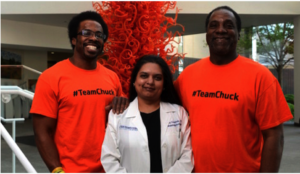
Dandridge was referred to UT Southwestern’s Simmons Cancer Center, where his leukemia was tested for genetic mutations.
“We wanted to know whether he had specific mutations in his cancer cells,” says Madhuri Vusirikala, M.D., Professor of Internal Medicine and the primary investigator of many UT Southwestern clinical trials related to bone marrow transplantation. “We found a mutation called IDH 2, which causes the body to produce an abnormal protein that promotes excessive cell growth. If you can target that mutation and stop the abnormal protein from being produced, then cells start behaving normally.”
Participation in the AG-221 Clinical Trial
Dandridge enrolled in a UT Southwestern clinical trial for a therapy called AG-221. He took four pills each morning for the next eight months. During that time, Dandridge saw marked improvement although he did not go into complete remission, according to Vusirikala. That success made him eligible for a potentially curative stem cell transplant. But finding a donor proved challenging.
Challenges in Finding a Suitable Donor
“The best chance of finding a full match is usually a full sibling; however, Chuck has no full siblings,” Vusirikala says. Additionally, Dandridge is African American, and minorities are under-represented in the National Marrow Donor Registry—about 70 percent of registry donors are Caucasian. The search for an unrelated donor was unsuccessful. Vusirikala says that he knew Dandridge’s daughter and his son would be at least a half match. Since using a same-sex donor is preferred, as it reduces the risk of complications, his son Jon, 31, emerged as the best choice. But the risk of graft-versus-host-disease (GvHD) following a transplant using a half-match is very high, so they needed a better way to deal with the GvHD risk.
Innovative BP-001 Clinical Trial

Once again, Mr. Dandridge volunteered for a cutting-edge clinical trial, known as BP-001, which processed the stem cells used in the transplant to reduce the risk of rejection and engineered blood cells that can be targeted if GvHD develops after the transplant. The processes being tested in BP-001 are in clinical development by Houston-based Bellicum Pharmaceuticals. The study is evaluating patients with blood cell cancers who have a peripheral blood stem cell transplant from a partially matched relative. Immune cells (T cells) from the related donor are separated from the rest of the stem cells and genetically engineered in the Bellicum laboratory, and then given to the patient along with the stem cell transplant.
Procedure and Outcome of the Transplant
These engineered T cells are modified to include a suicide gene with the help of a retrovirus. If the patient develops GvHD after transplant, the side-effect can be treated by giving a drug called rimiducid to activate the suicide gene and cause the activated GvHD-causing cells to be eliminated. The stem cells given for the transplant were also processed prior to giving them back to Dandridge to reduce the risk of graft rejection as well as GvHD. The genetically engineered blood cells were transplanted from Dandrige’s son, Jon, 31, to the father in three, two-hour infusions at William P. Clements Jr. University Hospital in July 2015, and today the elder Mr. Dandridge’s leukemia is in remission. His immune system is recovering, and the former Norman, Oklahoma YMCA CEO is now mentoring first-time CEOs for the YMCA.
- Published in Corporate News / Blog
Insulin-producing Stem Cells Grown in the Lab Mark a New Era in Stem Cell Therapies for Diabetes
Introduction to Insulin-Producing Pancreatic Beta Cells
A new discovery by researchers on how to activate lab-grown beta cells to mature into functioning cells that produce and release insulin in response to glucose takes a significant step toward a cell therapy treatment for diabetes. Difficulties in manipulating beta cells derived from human stem cells to mature beyond the precursor stage into fully functioning insulin releasers have been an ongoing challenge for researchers.
Breakthrough by Salk Institute Researchers
However, researchers from the Salk Institute for Biological Studies and a team of researchers have achieved this goal with lab-grown beta cells by activating a protein called estrogen-related receptor γ (ERRγ). Their study findings were recently published in the journal Cell Metabolism.
The Role of Human Pluripotent Stem Cells (hPSCs)
Ronald Evans, senior author of the study titled, “ERRγ Is Required for the Metabolic Maturation of Therapeutically Functional Glucose-Responsive β Cells,” explains the self-renewing capacity of human pluripotent stem cells (hPSCs) and their ability to differentiate into most cell types—from neurons to skin cells, to muscle cells, and insulin-producing pancreatic beta cells—has inspired many research teams to find ways to make glucose-responsive beta cells in the lab. Evans and his research team discovered the answer to the insulin-releasing cell conundrum, and summed it up thusly: “In a dish, with this one switch, it’s possible to produce a functional human beta cell that’s responding almost as well as the natural thing.”
Challenges in Lab-Grown Pancreatic Beta Cells
Evans, a molecular biologist at the Salk Institute, says that to create the different types of cells in the lab, researchers coax the pluripotent stem cells (hPSCs) down the various branching paths that fetal cells normally travel in order to differentiate into the various cell types. However, he explains there are many developmental points in this process, and in the case of lab-grown pancreatic beta cells, research kept getting stuck at an early stage.
Role of ERRγ in Adult Beta Cells
In order to determine what might trigger the next step in getting the cells to mature, the researchers compared transcriptomes of adult and fetal beta cells. The transcriptome contains, among other things, the full catalog of molecules that switch genes on and off in the genome, which led them to discover that the nuclear receptor protein ERRγ was more abundant in adult beta cells. The team was already familiar with the protein’s role in muscle cells and had studied its ability to enhance endurance running. Evans says that in muscles, the protein promotes greater growth of mitochondria—the power generators inside cells that accelerate the burning of sugars and fats to make energy.
Surprising Findings on Beta Cells
“It was a little bit of a surprise to see that beta cells produce a high level of this regulator,” Evans says. “But beta cells have to release massive amounts of insulin quickly to control sugar levels. It’s a very energy-intensive process.” The research team then decided to run some tests to look more closely at what role ERRγ might play in insulin-producing beta cells.
A New Era in Creating Functional, Insulin-Producing Beta Cells

After they genetically engineered a deficiency of ERRγ in mice, the researchers found the animals’ beta cells did not produce insulin in response to spikes in blood sugar. Next, they tried to get beta cells made from hPSCs to produce more ERRγ, and it worked! The cells in culture began to respond to glucose and release insulin. Finally, the team transplanted the lab-grown insulin-producing beta cells into diabetic mice and found that from day one, the cells produced insulin in response to glucose spikes in the animals’ blood.
Future Implications and Research
Evans and the research team were justifiably excited by the results. It appears that just switching on the ERRγ protein is sufficient to get the lab-grown beta cells to mature and produce insulin in response to glucose – both in cultures and in live animals. Speculating on the implications of their findings, Evans suggests that when a fetus is developing, because it gets a steady supply of glucose from the mother, it does not need to produce insulin to regulate its blood sugar, so the switch is inactive. But, when the baby is born and takes its first breath and takes in oxygen, this activates the switch. Previous lab attempts to produce beta cells got stuck at the fetal stage. The Salk Institute researchers discovered how to take it to the adult stage, using the same protein that is switched on in nature.
Conclusion
“I believe this work transitions us to a new era in creating functional beta cells at will,” Evans says. He and his research team now plan to examine how the switch might work in more complex models of diabetes treatments. The Salk Institute study precedes another study reported by Medical News Today in which researchers generated mini-stomachs that produce insulin when transplanted into mice.
- Published in Corporate News / Blog
Amazing Stem Cell Research Breakthroughs You Never Heard of
Introduction to Skin Stem Cell Research
Stem cell research has uncovered numerous groundbreaking discoveries over the years, many of which remain relatively unknown. This article highlights one such discovery related to skin stem cells and their critical role in regeneration and maintenance.
Discovery of Dnmt3a and Dnmt3b Proteins
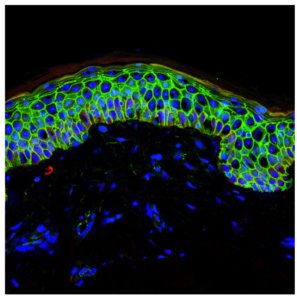
In a significant 2008 study published in “Cell Stem Cell,” researchers from the Catalan Institution for Research and Advanced Studies (CREA) identified two proteins—Dnmt3a and Dnmt3b—that play a crucial role in maintaining skin stem cells. Led by Salvador Aznar Benitah at the Institute for Research in Biomedicine (IRB Barcelona), the study revealed that these proteins are essential for the activation and preservation of skin stem cells.
Function of Dnmt3a and Dnmt3b in Skin Stem Cells

According to Benitah, head of the Stem Cells and Cancer lab at IRB Barcelona, without Dnmt3a and Dnmt3b, skin stem cells fail to activate and eventually diminish within the tissue. The proteins operate primarily on gene enhancers and super-enhancers, facilitating the expression of approximately 1,000 genes critical for the self-renewal of skin stem cells.
Genomic Insights and Mechanisms
Lorenzo Rinaldi, a researcher involved in the study, utilized advanced sequencing techniques to map the genomic distribution of Dnmt3a and Dnmt3b. This revealed their unexpected role in enhancing gene expression through DNA methylation, contrary to their previously known function in gene repression.
Link to Cancer Research
The study also highlighted implications for cancer research, noting that Dnmt3a and Dnmt3b are altered in various types of tumors, including leukemia, lung cancer, and colon cancer. The proteins’ role in DNA methylation and gene regulation suggests potential contributions to tumor development, warranting further investigation in cancer cell models.
Funding and Support
Funded by the Spanish Ministry of Economy and Competitiveness and supported by several foundations and councils, including The European Council for Research (ERC) and the Fundació Marató de TV3, Benitah’s research underscores the importance of public and private partnerships in advancing stem cell and cancer research.
Conclusion
This study represents a significant advancement in understanding the molecular mechanisms governing skin stem cell maintenance and its implications for both regenerative medicine and cancer biology. Continued research into Dnmt3a and Dnmt3b promises to unveil new therapeutic strategies and insights into cellular regeneration and disease progression.
- Published in Corporate News / Blog
Global Stem Cells Group Announces Training Course Scheduled in Manila, Philippines
Global Stem Cells Group has scheduled the first stem cell training course to be held in the Philippines Oct. 14-15, 2016. The course will be available to physicians from the Philippines, Thailand and Singapore who are qualified for training in the latest stem cell therapies.
MIAMI, Aug. 2, 2016—Global Stem Cells Group, a world leader in regenerative medicine, has announced the first stem cell training course to be held in Manila,

Makata, Manilla, Philippines
Philippines has been scheduled for Oct. 14 – 15, 2016. The course is part of a collaborative agreement between GSCG and Manila-based Eric Yalung, M.D., to train qualified physicians from the Philippines, Thailand and Singapore in the latest adipose and bone marrow therapies. The announcement signals GSCG’s renewed focus on the South East Asia markets, including permanent stem cell training centers in the Philippines and South Korea.
Adipose and Bone Marrow Stem Cell Training Course
The two-day intensive “Adipose and Bone Marrow Training Course” program will be held for referred physicians. In addition, Global Stem Cells Group will host training for its graduate course, “Diplomat in Stem Cell Training and Tissue Engineering,” with dates to be announced.
According to Global Stem Cells Group CEO Benito Novas, the agreement is the latest in the international biotech company’s ongoing expansion efforts to bring stem cell treatments to communities worldwide.
For more information, visit the Global Stem Cells Group website, email bnovas(at)stemcellsgroup (dot)com, or call (305) 560-5337.
About Global Stem Cell Group:
Global Stem Cells Group is the parent company of six wholly owned operating companies dedicated entirely to stem cell research, training, products and solutions. Founded in 2012, the company combines dedicated researchers, physician and patient educators and solution providers with the shared goal of meeting the growing worldwide need for leading edge stem cell treatments and solutions. With a singular focus on this exciting new area of medical research, Global Stem Cells Group and its subsidiaries are uniquely positioned to become global leaders in cellular medicine.
is the parent company of six wholly owned operating companies dedicated entirely to stem cell research, training, products and solutions. Founded in 2012, the company combines dedicated researchers, physician and patient educators and solution providers with the shared goal of meeting the growing worldwide need for leading edge stem cell treatments and solutions. With a singular focus on this exciting new area of medical research, Global Stem Cells Group and its subsidiaries are uniquely positioned to become global leaders in cellular medicine.
Global Stem Cells Group’s corporate mission is to make the promise of stem cell medicine a reality for patients around the world. With each of GSCG’s six operating companies focused on a separate research-based mission, the result is a global network of state-of-the-art stem cell treatments.
About Stem Cells Training:
Stem Cell Training, Inc. is a multi-disciplinary company offering coursework and training in 35 cities worldwide. Coursework  offered focuses on minimally invasive techniques for harvesting stem cells from adipose tissue, bone marrow and platelet-rich plasma. By equipping physicians with these techniques, the goal is to enable them to return to their practices, better able to apply these techniques in patient treatments.
offered focuses on minimally invasive techniques for harvesting stem cells from adipose tissue, bone marrow and platelet-rich plasma. By equipping physicians with these techniques, the goal is to enable them to return to their practices, better able to apply these techniques in patient treatments.
The company’s training courses are designed to make the best use of stem cell technology available to treat various diseases in a manner that is accessible to everyone. Stem Cell Training, Inc.’s mission is to introduce the promising world of cellular medicine to everyone who can benefit from its application, and to provide high quality, effective and efficient training that complies with the highest medical standards to physicians worldwide.
To view this press release live online, click here
###
- Published in Press Releases
Global Stem Cells Group Subsidiary Adimarket Announces Progenikine™ SVF Closed System Now Available to Purchase Online
Global Stem Cells Group subsidiary Adimarket announces that Progenikine™, is now available to purchase through the Adimarket website. Progenikine is the new SVF closed system kit utilizing EmCyte technology and containing all the elements necessary to process adipose tissue and obtain stromal vascular fraction in a sterile environment for stem cell therapies.
MIAMI, July 30, 2016–Adimarket, a subsidiary of Global Stem Cells Group, Inc., has announced that Progenikine™, the new and approved SVF closed system kit using EmCyte technology, is now available to purchase online through the Adimarket website. The Progenikine kit contains all the elements necessary to process adipose tissue and obtain stromal vascular fraction (SVF) in a closed environment.
A growing number of physicians are switching to the Progenikine kit system, as it provides the perfect preparation for virtually all clinical applications.
Built with EmCyte Technology, the kit has been independently reviewed and proven in various critical performance points that make a difference in patient outcomes. The Progenikine system allows entire procedure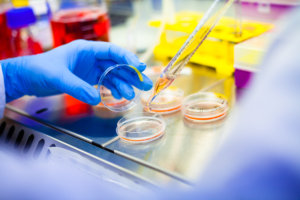 s to be performed in a sterile closed system. Currently, the Progenikine kit is being used in topical procedures such as intra-articular injection for osteoarthritis of the knee and hip, cosmetic surgery and acne scarring, dermal injection, stem cell enriched fat transfer, wounds, chronic ulcers, and other chronic conditions.
s to be performed in a sterile closed system. Currently, the Progenikine kit is being used in topical procedures such as intra-articular injection for osteoarthritis of the knee and hip, cosmetic surgery and acne scarring, dermal injection, stem cell enriched fat transfer, wounds, chronic ulcers, and other chronic conditions.
Adipose derived stem cells (ASCs) are used by physicians for a variety of indications. Most commonly, ASCs are isolated at the point of care from lipoaspirate (derived from liposuction) tissue as the stromal vascular fraction (SVF), harvested from the patient and immediately administered to the patient as an injection, or used to enrich fat grafts. Isolation of ASCs from adipose tissue is a relatively simple process performed routinely in cell biology laboratories, but isolation at the point of care for immediate clinical administration requires special methodology to prevent contamination, ensure integrity of the clinical procedure, and comply with regulatory requirements.
Developed 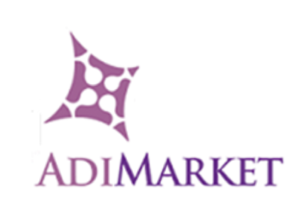 in conjunction with Patrick Pennie, EmCyte CEO, Progenikine fuses elements from EmCyte systems with the Global Stem Cells Group SVF protocols. The kit can provide a low cost, rapid and simple alternative to traditional methods of isolating ASCs, particularly when smaller quantities are needed.
in conjunction with Patrick Pennie, EmCyte CEO, Progenikine fuses elements from EmCyte systems with the Global Stem Cells Group SVF protocols. The kit can provide a low cost, rapid and simple alternative to traditional methods of isolating ASCs, particularly when smaller quantities are needed.
To learn more about the Progenikine kit, visit the Adimarket website, email bnovas(at)stemcellsgroup(dot)com, or call 305-560-5337.
About Global Stem Cells Group:
Global Stem Cells Group is the parent company of six wholly owned operating companies dedicated entirely to stem cell research, training, products and solutions. Founded in 2012, the company combines dedicated researchers, physician and patient educators and solution providers with the shared goal of meeting the growing worldwide need for leading edge stem cell treatments and solutions.
With a singular focus on this exciting new area of medical research, Global Stem Cells Group and its subsidiaries are uniquely positioned to become global leaders in cellular medicine.
Global Stem Cel ls Groups corporate mission is to make the promise of stem cell medicine a reality for patients around the world. With each of GSCGs six operating companies focused on a separate research-based mission, the result is a global network of state-of-the-art stem cell treatments.
ls Groups corporate mission is to make the promise of stem cell medicine a reality for patients around the world. With each of GSCGs six operating companies focused on a separate research-based mission, the result is a global network of state-of-the-art stem cell treatments.
About Adimarket:
Adimarket, Inc., a division of the Global Stem Cells Group, is a cost-competitive online marketplace for quality regenerative medicine equipment and supplies for physicians and health care professionals.
Adimarket was founded to provide physicians and other health care professionals the tools they need to practice regenerative medicine in a medical office setting. Motivated by a firm belief in the impact the practice of stem cell medicine can have when dispensed in a doctor’s office, Adimarket provides physicians with the tools they need to provide patients with cutting edge treatments.
Adimarket’s experienced customer service representatives provide valuable guidance and advice regarding products relevant to individual practices.
About EmCyte:
 Fort Myers, Florida-based EmCyte Corporation is a leader in autologous cellular biologics with the GenesisCS Component Concentrating Systems. These systems provide patients with the best opportunity for rapid recovery and provide practitioners with the most advanced clinical point of care experience. EmCyte systems are developed to meet every clinical requirement, giving the physician better clinical choices. EmCyte devices have been independently reviewed and show to produce buffycoat concentrations of 6x to greater than 10x baseline in 7mLs, with yields ranging from 70 percent to greater than 90 percent.
Fort Myers, Florida-based EmCyte Corporation is a leader in autologous cellular biologics with the GenesisCS Component Concentrating Systems. These systems provide patients with the best opportunity for rapid recovery and provide practitioners with the most advanced clinical point of care experience. EmCyte systems are developed to meet every clinical requirement, giving the physician better clinical choices. EmCyte devices have been independently reviewed and show to produce buffycoat concentrations of 6x to greater than 10x baseline in 7mLs, with yields ranging from 70 percent to greater than 90 percent.
EmCyte technology allows for the safe extraction of concentrated platelets and other regenerative cell types from the patient’s own blood. These cells are then re-suspended in a small volume of the patient’s blood plasma and then applied to the treatment site.
###
- Published in Press Releases
Global Stem Cells Announces Formal Inaugural for Clinica Biomaster in Costa Rica
Global Stem Cells Group has launched Clinica Biomaster Costa Rica with an inauguration and symposium at Clinica Biomaster, the company’s new stem cell center in Escazú, Costa Rica.
Global Stem Cells Group hosted a symposium and formal inauguration of Clinica Biomaster Costa Rica, the company’s new stem cell center in Escazú, Costa Rica. Joseph Purita, M.D., head of the Global Stem Cells Group Scientific Advisory Board, was the keynote speaker at the event, held July 15 and 16, 2016.
Purita also presented lectures to medical staff at Hospital CIMA and Hospital Metropolitano in San Jose during the inaugural weekend.
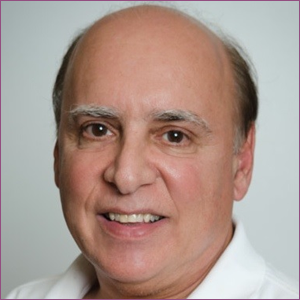
Joseph Purita, M.D.
The two-day symposium officially launched Global Stem Cells Group’s Costa Rica operations, which includes plans for four stem cell training courses for physicians and a regenerative medicine symposium in early 2017.
Clinica Biomaster is headed by neurologist and anti-aging specialist Dra. Mariella Tanzi, founder of BIOMEN S.A. Tanzi and Biomaster have formed an alliance with GSCG to be the exclusive representative for the Miami-based biomedical company’s products and services in the Costa Rica market.
The symposium included sessions on clinical advances in stem cell research; molecular biology; models of treatment in surgical and cosmetic applications, and in clinical conditions; application of minimally manipulated stem cells in the physician’s office; stem cells, regenerative medicine and its application in anti-aging medicine and medical legal issues. It also included a full day, hands-on training session to provide participating physicians and qualified medical professionals with state-of-the-art techniques for isolating and re-integrating adipose- and bone marrow-derived stem cells for in office patient treatments, along with clinical protocols.
 This popular training course is part of the Global Stem Cells Group’s commitment to the growing network of world-class stem cell researchers, treatment practitioners and investors committed to advancing stem cell medicine, and helping physicians bring treatments into the office for the benefit of patients.
This popular training course is part of the Global Stem Cells Group’s commitment to the growing network of world-class stem cell researchers, treatment practitioners and investors committed to advancing stem cell medicine, and helping physicians bring treatments into the office for the benefit of patients.
To learn more, visit the Global Stem Cells Group website, or the Stem Cell Training website, email bnovas(at)regenestem(dot)com, or call +1 305 560 5337.
About Global Stem Cell Group:
Global Stem Cells Group, Inc. is the parent company of six wholly owned operating companies dedicated entirely to stem cell research, training, products and solutions. Founded in 2012, the company combines dedicated researchers, physician and patient educators and solution providers with the shared goal of meeting the growing worldwide need for leading edge stem cell treatments and solutions. With a singular focus on this exciting new area of medical research, Global Stem Cells Group and its subsidiaries are uniquely positioned to become global leaders in cellular medicine.
To review this press release live online, click here
###
- Published in Press Releases
Global Stem Cells Group Announces Stem Cell Training Course in South Korea
(Pictured: bone marrow stem cells)
Global Stem Cells Group will host a stem cell training course in SVF and bone marrow aspiration techniques July 28-29, 2016.
MIAMI, July 28, 2016–Global Stem Cells Group, in collaboration with South Korean biomedical company N-Biotek will host a course in stromal vascular fraction (SVF) and bone marrow aspiration techniques for physicians at the N-Biotek headquarters in Gyeonggi-do Province of South Korea July 29 and 29, 2016.
The training course is part of a collaborative agreement between GSCG’s Adimarket division and N-Biotek, a worldwide 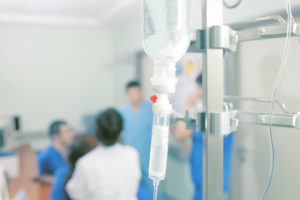 biomedical and lab equipment manufacturer, to promote and distribute their stem cell technology equipment throughout Latin America.
biomedical and lab equipment manufacturer, to promote and distribute their stem cell technology equipment throughout Latin America.
The two-day, hands-on training covers the latest technology and procedures in SVF and bone marrow stem cell techniques. Practitioners learn skills that can be used to treat patients in their practices, and for career advancement. The SVF and bone marrow aspiration course was developed for physicians and high-level practitioners to learn techniques in harvesting and reintegrating stem cells derived from adipose tissue and bone marrow. The objective of the training teach effective, in-office regenerative medicine techniques.
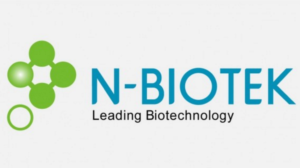 N-Biotek develops a range of custom lab products including the Esfomi cosmetic line, and the Stem Cell Total Solution for emerging stem cell businesses.
N-Biotek develops a range of custom lab products including the Esfomi cosmetic line, and the Stem Cell Total Solution for emerging stem cell businesses.
N-Biotek is the only company that builds the whole stem cell processing system for partners ready to begin work in the stem cell industry. N-Biotek meets every need for stem cell clinicians, including biological clean room construction, equipment installation and stem cell processing consulting.
N-Biotek currently distributes medical equipment and services to facilities and professionals in more than 100 countries.
For more information, visit the Global Stem Cells Group website, email bnovas@stemcellsgroup(dot)com, or call +1 305 560 5337.
About Global Stem Cells Group:
Global Stem Cells Group, Inc. is the parent company of six wholly owned operating companies dedicated entirely to stem cell research, training, products and solutions. Founded in 2012, the company combines dedicated researchers, physician and patient educators and solution providers with the shared goal of meeting the growing worldwide need for leading edge stem cell treatments and solutions. With a singular focus on this exciting new area of medical research, Global Stem Cells Group and its subsidiaries are uniquely positioned to become global leaders in cellular medicine.
research, training, products and solutions. Founded in 2012, the company combines dedicated researchers, physician and patient educators and solution providers with the shared goal of meeting the growing worldwide need for leading edge stem cell treatments and solutions. With a singular focus on this exciting new area of medical research, Global Stem Cells Group and its subsidiaries are uniquely positioned to become global leaders in cellular medicine.
About Adimarket:
Adimarket, Inc., a division of the Global Stem Cells Group, is a cost-competitive online marketplace for quality regenerative medicine equipment and supplies for physicians and health care professionals.
Adimarket was founded to provide physicians and other health care professionals the tools they need to practice regenerative medicine in a medical office setting. Motivated by a firm belief in the impact the practice of stem cell medicine can have when dispensed in a doctor’s office, Adimarket provides physicians with the tools they need to provide patients with cutting edge treatments.
Adimarket’s experienced customer service representatives provide valuable guidance and advice regarding products relevant to individual practices.
About N-Biotek:
N-Biotek, Inc., founded in 2000 and located in the Gyeonggi-do Province of South Korea, is a leading manufacturer and supplier of bio-technology-related laboratory equipment. N-Biotek delivers high quality biomedical equipment to more than 100 countries.
To view this press release live online, click here
###
- Published in Press Releases
New Guidelines for Stem Cell Research and Therapies Aim to Protect Patients from Charlatan Quackery
Introduction
Stem cell research has advanced significantly, leading to a myriad of treatment options. However, the field faces challenges from unscrupulous providers and premature publicity.
Professional Guidelines for Responsible Stem Cell Research
International Society for Stem Cell Research (ISSCR)
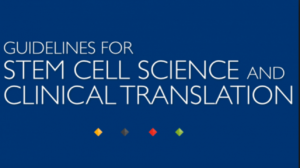
The ISSCR leads in setting high standards for translational stem cell research:
- Emphasizes rigorous preclinical evidence and peer review.
- Highlights the importance of IRB review and comprehensive informed consent.
International Society for Cellular Therapy (ISCT)
The ISCT expands its scope beyond stem cells, advocating for broader cell-based interventions:
- Focuses on defining scientific evidence and regulatory practices.
- Addresses implications across clinical practice and commercialization.
Development of New Guidelines
Terminology and Scientific Evidence
Efforts are underway to standardize terminology and define scientific evidence levels critical for ethical and effective stem cell therapy.
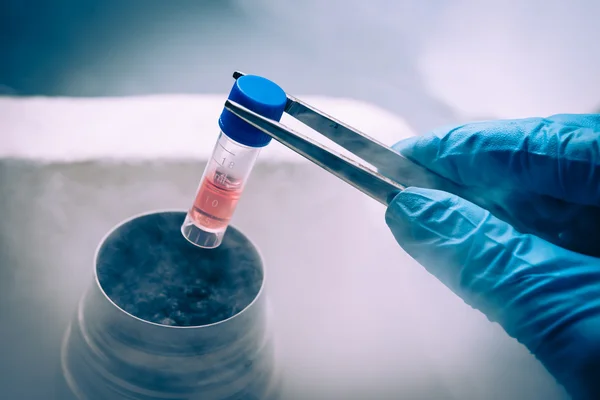
ISSCR’s 2016 Guidelines Update
In 2016, ISSCR updated guidelines cover:
- Emerging technologies like gene editing and induced pluripotent stem cells (iPSCs).
- Upholding ethical standards such as the “14-day rule” for embryo experimentation.
Key Topics Addressed in the Revised Guidelines
The updated guidelines include:
- Oversight processes for embryo research and mitochondrial replacement therapy.
- Standards for preclinical and clinical research, emphasizing safety and efficacy.

Advancements in Stem Cell Research
Stem cell therapies show promise in treating a range of conditions, leveraging pluripotent stem cells for tissue repair and genetic disease treatments.
Conclusion
Stem cell research continues to evolve responsibly, offering hope for future medical advancements while safeguarding patient interests against fraudulent practices.
- Published in Corporate News / Blog

